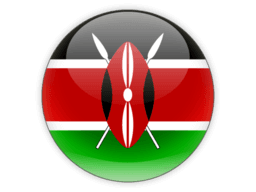
Regions of Kenya
Explore 47 regions
Cities of Kenya
Discover 50 cities across 29 regions
Bungoma County(2)
Busia County(1)
Embu County(1)
Garissa County(1)
Isiolo County(1)
Kajiado County(4)
Kakamega County(2)
Kiambu County(7)
Kilifi County(3)
Kisii County(1)
Kisumu County(1)
Kwale County(1)
Laikipia(1)
Mandera County(2)
Meru County(1)
Migori County(1)
Mombasa County(1)
Murang'A(1)
Nairobi County(3)
Nakuru County(3)
Narok County(1)
Nyandarua County(1)
Nyeri County(1)
Trans Nzoia(1)
Turkana County(1)
Uasin Gishu County(1)
Vihiga County(1)
Wajir County(1)
Kenya is a country located in East Africa, bordered by Tanzania to the south, Uganda to the west, South Sudan to the northwest, Ethiopia to the north, Somalia to the east, and the Indian Ocean to the southeast. The country covers an area of approximately 582,000 square kilometers and has a population of over 50 million people.
Kenya is known for its vast wildlife reserves and parks, including the Maasai Mara National Reserve, which is famous for its annual wildebeest migration. Other popular parks include Amboseli National Park, Tsavo National Park, and Lake Nakuru National Park.
Apart from its natural beauty, Kenya also boasts a rich cultural heritage with over 40 different ethnic groups each with its own unique traditions and practices. The Maasai people, who are famous for their traditional dress, are perhaps the most well-known of these groups.
Kenya's capital city, Nairobi, is a bustling metropolis with a vibrant cultural scene and a rich history. Visitors to Nairobi can explore attractions such as the National Museum of Kenya, the Karen Blixen Museum, and the Nairobi National Park, which is located within the city limits.
Kenya's economy is diverse, with agriculture, manufacturing, and services being the main sectors. The country is a leading exporter of tea, coffee, and flowers and is also home to several multinational corporations, particularly in the technology sector. The tourism industry is also a significant contributor to the economy, with millions of visitors coming to Kenya each year to experience its natural beauty and cultural richness.
Despite its many attractions, Kenya faces a number of challenges, including poverty, inequality, and political instability. However, the country has made significant strides in recent years, particularly in areas such as education, health, and infrastructure development, and is widely regarded as one of Africa's most promising economies.
Telephone Code
254
Local Emergency Phone
999
Vaccinations
An International Certificate of Vaccination for yellow fever is required for travelers arriving from countries with a risk of yellow fever transmission and for travelers having transited through the airport of a country with risk of yellow fever transmission. See WHO recommendations.
Climate
Varies from tropical along coast to arid in interior
Currency (Code)
Kenyan shillings (KES)
Electricity/Voltage/Plug Type(s)
240 V / 50 Hz / plug types(s): G
Major Languages
English, Kiswahili, numerous indigenous languages
Major Religions
Christian 85.5%, Muslim 10.9%
Potable Water
Opt for bottled water
International Driving Permit
Suggested
Road Driving Side
Left
Tourist Destinations
National Parks of Nairobi, Tsavo, Lake Nakuru; National Reserves of Maasai Mara, Amboseli, Samburu, Shaba, Buffalo Springs; Thimlich Ohinga Archaeological Site, beaches near Malindi and Diani
Major Sports
Soccer, track and field, basketball, volleyball
Cultural Practices
Giving gifts with the left hand is considered taboo; use your right hand or both hands.
Tipping Guidelines
A tip of 10% is appropriate for the wait staff in restaurants. At hotels, porters may be tipped anything from 50-100 shillings, and housekeepers from 200-500 shillings per week.
Souvenirs
Sisal or leather baskets; carved teak, ebony, or mninga wood statues, gourds, and tableware; soapstone items; wax paintings; tribal sarongs, blankets, jewelry, spears, and drums; coffee
Traditional Cuisine
Ugali nyama choma na kachumbari — maize meal, grilled meat, and an onion-and-tomato salsa
Geography
Area
total: 580,367 sq km
land: 569,140 sq km
water: 11,227 sq km
Climate
varies from tropical along coast to arid in interior
Natural resources
limestone, soda ash, salt, gemstones, fluorspar, zinc, diatomite, gypsum, wildlife, hydropower
People and Society
Population
57,052,004 (2023 est.)
Ethnic groups
Kikuyu 17.1%, Luhya 14.3%, Kalenjin 13.4%, Luo 10.7%, Kamba 9.8%, Somali 5.8%, Kisii 5.7%, Mijikenda 5.2%, Meru 4.2%, Maasai 2.5%, Turkana 2.1%, non-Kenyan 1%, other 8.2% (2019 est.)
Languages
English (official), Kiswahili (official), numerous indigenous languages
Religions
Christian 85.5% (Protestant 33.4%, Catholic 20.6%, Evangelical 20.4%, African Instituted Churches 7%, other Christian 4.1%), Muslim 10.9%, other 1.8%, none 1.6%, don't know/no answer 0.2% (2019 est.)
Population growth rate
2.09% (2023 est.)
Government
Government type
presidential republic
Capital
name: Nairobi
Economy
Economic overview
fast growing, third largest Sub-Saharan economy; strong agriculture and emerging services and tourism industries; current account deficit and high debt; broadband and mobile-money platform investments; surging inflation due to oil and food hikes; new investor-friendly incentives; environmentally fragile economy
Real GDP (purchasing power parity)
$251.431 billion (2021 est.)
Real GDP per capita
$4,700 (2021 est.)
Agricultural products
milk, tea, beef, maize, sugar cane, tomatoes, mangoes/guavas, potatoes, beans, bananas
Industries
agriculture, transportation, services, manufacturing, construction, telecommunications, tourism, retail
Exports
$11.825 billion (2021 est.)
Exports - partners
Uganda 14%, Pakistan 8%, Netherlands 8%, United States 8%, United Kingdom 7% (2020)
Exports - commodities
tea, cut flowers, refined petroleum, gold, coffee (2020)
Imports
$21.853 billion (2021 est.)
Imports - partners
China 27%, India 11%, United Arab Emirates 7%, Japan 4%, Saudi Arabia 3% (2020)
Imports - commodities
refined petroleum, palm oil, broadcasting equipment, packaged medicines, cars (2020)
International Airports in Kenya
Discover 11 major airports serving Kenya
Mark Kenya as Visited
Add Kenya to your personal travel map and track your journey around the world. Share your adventures and see your progress grow!